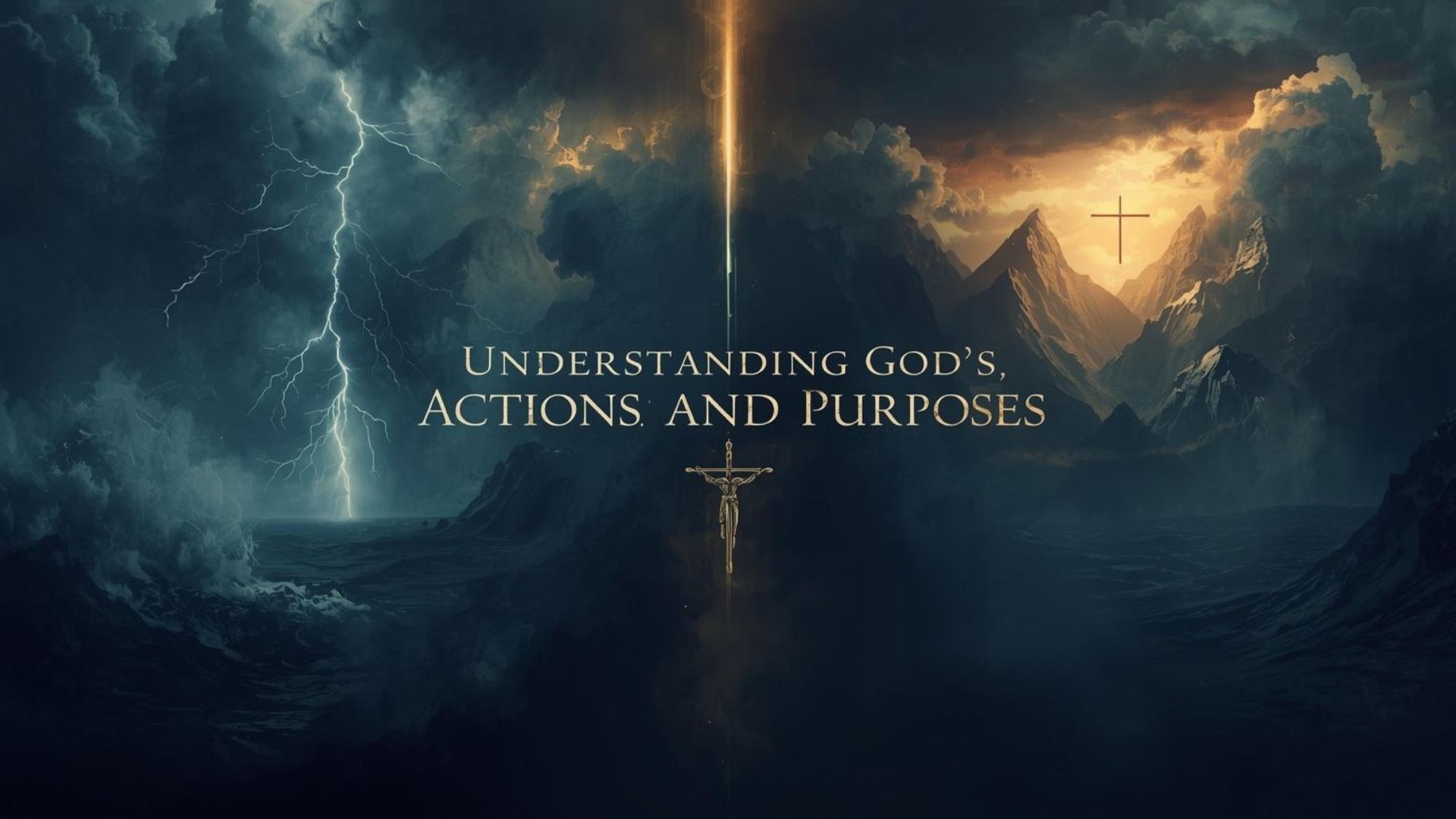Understanding God’s Actions and Purposes
A deep exploration of why God allowed and commanded certain judgments in the Old Testament — revealing His justice, mercy, and ultimate plan of redemption through Christ.
1. Why did God kill many people in the Old Testament?
Answer:
Because God is holy and just, and He cannot allow sin and evil to continue unchecked.
In the Old Testament, when people or nations became deeply wicked — committing violence, idolatry, or child sacrifice — God judged them, but only after great patience and many warnings.
“The LORD is slow to anger but great in power; the LORD will not leave the guilty unpunished.” — Nahum 1:3
Even when He judged, God always showed mercy — saving Noah from the Flood, sparing Rahab in Jericho, and offering repentance to Nineveh.
These judgments reveal how serious sin is and prepare us to understand Jesus, who took that judgment upon Himself at the Cross.
2. Why did God create man and put the Tree of the Knowledge of Good and Evil in the garden?
Answer:
Because God wanted a real relationship with mankind — one based on love, not control.
He gave humans the freedom to choose Him, symbolized by the two trees in Eden:
- 🌳 Tree of Life: Represents eternal life and fellowship with God.
- 🍎 Tree of Knowledge of Good and Evil: Represents the freedom to obey or disobey.
Without that freedom, love would be meaningless.
Adam and Eve’s choice to disobey showed mankind’s desire for independence from God — but even then, God’s mercy was already at work, promising a Savior (Genesis 3:15).
Through Jesus, the “new Adam,” we are given access again to the Tree of Life (Revelation 2:7).
3. Why does God allow innocent people, especially children, to suffer?
Answer:
Because we live in a fallen world — not the perfect one God originally made.
Sin damaged all of creation, and its effects (disease, disaster, injustice) touch even the innocent.
But this does not mean God is cruel or absent.
God grieves with those who suffer — Jesus Himself wept, suffered, and died unjustly.
He entered our pain so that one day He could end it forever.
“He will wipe every tear from their eyes.” — Revelation 21:4
Children who suffer or die are not forgotten.
God’s mercy is greater than human understanding, and Scripture shows His heart is tender toward the innocent:
“Let the little children come to me, for the kingdom of heaven belongs to such as these.” — Matthew 19:14
In the end, God will restore justice, comfort, and peace — and every wrong will be made right.
4. If God is loving, why didn’t He just stop evil from the beginning?
Answer:
Because to remove evil, God would also have to remove free will.
And without free will, love would be impossible.
God allows choice — even the possibility of evil — so that real love and trust can exist.
But He also promises a future where evil will no longer exist, and everyone who loves Him will live in perfect peace forever.
“For now we see only a reflection… but then we shall see face to face.” — 1 Corinthians 13:12
5. So what does all this show about God’s character?
Answer:
It shows that God is:
- Holy — He cannot tolerate sin.
- Just — He judges evil rightly.
- Patient — He gives time to repent.
- Merciful — He forgives and saves.
- Loving — He sent Jesus to take our punishment and restore us to Himself.
Every story in the Bible — even the hard ones — points to this truth:
“For God so loved the world that He gave His one and only Son.” — John 3:16
✝️ Summary Table
| Question | Key Truth | Supporting Verse |
|---|---|---|
| Why did God kill many? | Because He is holy and just, and sin brings destruction | Nahum 1:3 |
| Why create man with a choice? | Love requires free will | Genesis 2:16–17 |
| Why allow suffering? | We live in a fallen world, but God is redeeming it | Romans 8:22 |
| Why not stop evil now? | He allows free will but will end evil in His time | Revelation 21:4 |
| What does this reveal about God? | He is just, merciful, and loving | John 3:16 |
Final Thought:
The Bible’s story isn’t about a cruel God, but a holy, patient, and loving Father who is working to redeem a broken world — and who, through Jesus, will one day restore all things.
